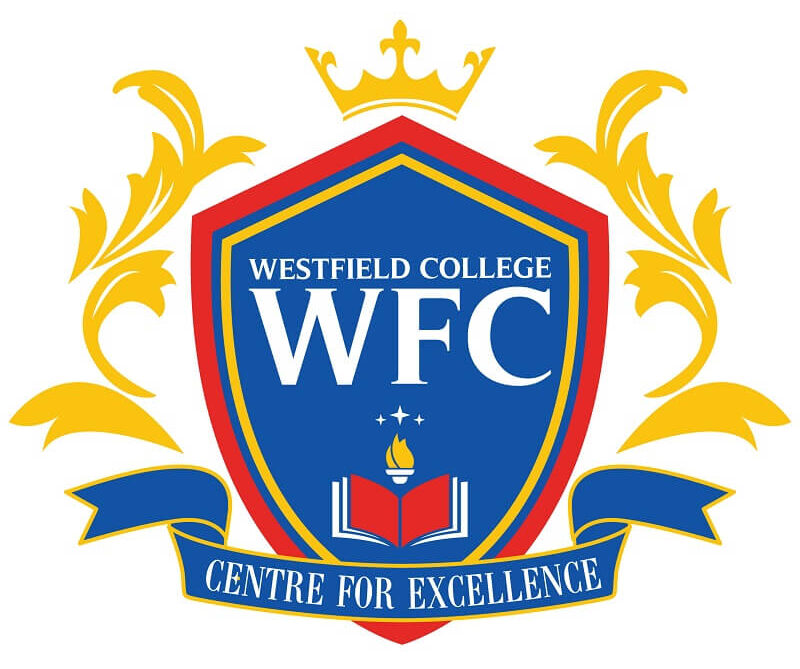Communication in Health and Social Care. Great Course. Very Easy to Understand
BA (Hons) Counselling and Therapeutic Practice

BA (Hons) Counselling and Therapeutic Practice
Overview:
The Counselling and Therapeutic Practice degree offers the learning and training you need to become a professional Pluralistic counsellor, working with an integrative model. You’ll gain the knowledge, skills and experience to provide counselling across all age ranges, from children and young people to older adults. You will study a range of traditional ‘talking therapies’, as well as creative and contemporary approaches working both face-to-face and online with clients.
Work placements are an important part of this counselling degree and will fully prepare you for the start of your career. You will have placements in every year of the course, including 100 hours of supervised professional practice. These hours can count towards the 450 client hours needed for BACP individual accreditation post qualification.
The School of Psychology and Therapeutic Studies has dedicated Placement Officers and strong links with a wide range of local counselling agencies, employers and counselling services to provide you with the supervised practice hours required.
Typical A-Level Offer
BCC to exclude General Studies (this is equivalent to 104 UCAS tariff points).
Typical Welsh BACC Offer
Pass the Advanced Welsh Baccalaureate Diploma with Grade C/B in the Skills Challenge Certificate and BC – CC at A Level to exclude General Studies (this is equivalent to 104 UCAS tariff points).
Typical BTEC Offer
BTEC Extended Diploma Distinction Merit Merit (this is equivalent to 112 UCAS tariff points).
Typical Access to HE Offer
Pass the Access to HE Diploma with a minimum of 104 UCAS tariff points
Additional Requirements
An interview is required for this course. Those applying will be provided with further details if successful at the initial selection stage.
Online application form
Information requested on this form should be completed in as much detail in order to process your application successfully. All fields marked * must be completed.
Apply Now
Entry Requirements
Contextual offers
We may make you a lower offer based on a range of factors, including your background (where you live and the school or college that you attended for example), your experiences and individual circumstances (as a care leaver, for example). This is referred to as a contextual offer and we receive data from UCAS to support us in making these decisions. USW prides itself on its student experience and we support our students to achieve their goals and become a successful graduate. This approach helps us to support students who have the potential to succeed and who may have faced barriers that make it more difficult to access university. Here is a link to our Contextual Admissions Policy.
Other qualifications and experience
We can also consider combinations of qualifications and other qualifications not listed here may also be acceptable. We can sometimes consider credits achieved at other universities and your work/life experience through an assessment of prior learning. This may be for year one entry, or advanced entry to year two or three of a course where this is possible.
To find out which qualifications have tariff points, please refer to the UCAS tariff calculator.
If you need more help or information or would like to speak to our friendly admissions team, please contact us here
You may also apply if you feel you have a relevant career history and experience of working with young people. This will usually include Level 2 or 3 Certificate in Counselling Skills plus the required 150 hours direct experience of working with young people, or with adults with social, psychological or emotional difficulties.
WHAT YOU WILL STUDY
Year One: Counselling and Therapeutic Practice Degree
Introduction to Pluralistic Practice (40 credits) – An introduction to Pluralistic therapy and three other mainstream therapies which will form the integrative approach to counselling. You will develop your knowledge of the philosophies and theories which underpin these therapies along with relevant research to develop an evidence-based approach to counselling practice. You will learn essential skills, qualities, ethics and law in counselling contexts necessary for professional practice ensuring that future practice is inclusive and able to meet the mental health needs of diverse individuals.
Introduction to Personal and Professional Development (20 credits) – An introduction to the essential areas of personal and professional development, which requires you to engage in experiential learning within peer relationships, with staff and placement organisations. Included in this module are two ‘away days’ (non-residential) at a locally based venue and 40 hours of Orientation Placement.
Introduction to Counselling Children (20 credits) – An understanding of child development, the importance of therapeutic play and how you can develop a therapeutic relationship with children.
Academic and Research Skills (20 credits) – Developing your academic skills and understanding recent research findings to support your developing practice.
Mental Health and Wellbeing (20 credits) – Understanding mental health and wellbeing from different perspectives. An introduction to common mental health difficulties and how you can work with these therapeutically.
All modules in Year 1 are core modules and must be successfully completed to progress through the degree. Completion of all modules and module assessments in year 1 will give you an HE Certificate in Counselling Studies. This does not qualify you to practice.
Year Two Modules: Counselling and Therapeutic Practice Degree
Developing Pluralistic Practice (40 credits) – Building on learning from Year One to develop your use of a Pluralistic approach to meet the specific needs of individual clients. You will develop a sound working knowledge of integrating a range of short term, change-orientated helping skills as well as a mix of in-person and online counselling, and how to apply knowledge of theory, research, ethics and law in a professional counselling context.
Deepening Personal & Professional Development (20 credits) – You will continue to develop reflective practice through personal development groups and experiential activities. You will study professional practice skills such as writing case notes and how to use counselling supervision to support your placement work. Included in this module is an ‘away day’ (non-residential) in a locally based venue and completion of 40 hours of supervised clinical practice towards the required 100 hours to complete the degree.
Counselling Adolescents and Young People (20 credits) – Building upon your knowledge of development theory to create a safe and effective framework for working with young people, using age-appropriate counselling skills and resources within a pluralistic framework with a young client.
Online Counselling (20 credits) – An introduction to a rapidly developing area of practice in which you will be discovering the difference between counselling in-person and counselling online.
Counselling Older Adults (20 credits) – Developing your knowledge of theory and research relating to counselling older adults and honing your skills to work with this client group.
All modules in Year 2 are core modules and must be successfully completed to progress through the degree. Completion of all modules and module assessments in years 1 and 2 will give you an HE Diploma in Counselling Studies. This does not qualify you to practice.
Year Three: Counselling and Therapeutic Practice Degree
Enhancing Pluralistic practice (40 credits) – expanding your existing knowledge of counselling theory and research and applying learning to more complex client groups and mental health issues.
Enhancing Personal and Professional Development (20 credits) – you will be engaging in self-reflective and group activities which encourage a deeper self-awareness of self in relation to others and applying this to your work with clients. Included in this module is an ‘away day’ (non-residential) in a locally based venue and completion of 60 hours of supervised clinical practice towards the required 100 hours to complete the degree.
Counselling Children and Young People with Complex Issues (20 credits) – You will be critically reflecting on practice and research in counselling children and young people with complex mental health issues and how to work with other professionals and family members when supporting these clients.
Integrating Creative Methods (20 credits) – Drawing on research from a range of perspectives, this module will equip you to an increasingly popular and essential area of counselling practice. By using creative ways of working therapeutically with clients across the lifespan, you will have increased flexibility to enhance the therapeutic experience for clients.
Evidence-Based Practice (20 credits) – You will develop an understanding of the underpinnings of evidence-based practice informing counselling, alongside the skills necessary to critically respond to research evidence and propose an approach to undertaking a small scale research project.
Completion of all modules and module assessments in years 1, 2 and 3 alongside 100 hours minimum of supervised clinical practice will give you the BA Hons in Counselling and Therapeutic Practice which qualifies you to practice.
Engagement in personal therapy is currently a recommendation, there will be a requirement for all students to engage in minimum 20 hours of personal therapy during the course from September 24.
Teaching
Course Aims:
- To develop competent counselling practitioners, skilled at working across the life span within a pluralistic framework.
- To develop counselling practitioners with a critical understanding of the theoretical underpinnings of their practice.
- To develop ethically minded counselling practitioners, with the knowledge, skills and personal attributes required to practice professionally.
- To develop counselling practitioners with a critical understanding of evidence -based practice.
The counselling qualification will be delivered via a blend of skills practice: direct teaching (lectures, seminars and workshops); personal development activity, practice placements and directed study. As this is professional counselling training, you are required to attend all timetabled classes and other elements of the course.
Training as a counsellor involves taking part in varied activities to help your learning about yourself as a person, as well as learning practical skills and theory. Personal development takes place in all parts of the course, including personal development group work and reflective activity. You will also take part in regular small group skills practice where you take it in turns to be ‘client’, counsellor or observer. You will need to read widely, to do guided literature research and give informal reviews to your tutors and peers. There are practice placements in all three years of the course.
Students will typically have 12 contact hours across 2 days per week in term time. When a residential or special event is taking place, this may vary. In addition to the contact hours you will complete independent study, placement hours, supervision hours and personal therapy. Placement based work generally equates to at least half a day a week over the academic year.
Assessment
Assessment methods are varied in format and will include written assessments; presentations; case studies; skills assessments; work placement and portfolio assessments. For successful completion of this degree you are required to pass all assessments on all modules.
COURSE DETAILS
Accreditations
The course will be is currently applying for accreditation by the British Association for Counselling and Psychotherapy (BACP). The University has three Counselling and Psychotherapy courses accredited by the BACP. See further details of all Counselling and Psychotherapy courses available at USW.
Placements
You will undertake placements in every year of the counselling course including 100 hours of supervised professional practice, which will fully prepare you for your future career. We strongly advise students to work in a range of placements across the 100 hours in order to experience working with different clients and different organisations as this will reflect their pluralistic training and enhance their employability.
USW has long-standing partnerships with public, private and voluntary sector organisations and you will have the opportunity to apply to any of these organisations as part of your placement experience. In addition, USW Therapy Centre is a service run by USW for people in the local area, which may provide an opportunity for placement experience on-campus. The USW school-based counselling service, NISBCS also provides placement opportunities for working with children and young people.
You will need to organise your own placements as part of your professional development. The Placement Officer will help identify and check possible placement providers and, along with subject tutors, will support you throughout your placement.
Field Trips
Away days are planned for all year groups as a chance to explore more experientially themes learned on the course.
There may be additional costs associated with this course
Facilities
Facilities for students on our counselling courses in Newport include a suite of rooms for one-to-one skills practice. These are also used by our in-house counselling service, which can also offer work experience opportunities.
We have specialist resources for online counselling techniques, plus dedicated video recording facilities to support all your skills development in class, in private study time and for assessments. Students also have full access to library resources across all USW campuses.
Students have access to a range of extra-curricular learning opportunities such as on-campus CPD workshops and mental health training, they are encouraged to attend the Pluralistic Conference each spring.
Lecturers
All lead teaching staff are experienced practicing counsellors and psychotherapists, accredited and registered with the BACP or an equivalent professional body.
Anna Fox – (MA Counselling, PG Dip CBT, PG Dip Psychology, Cert Consultative Supervision) course lead and year 3 tutor. She is a qualified CBT therapist accredited by BACP with over 12 years’ counselling experience. She works in private practice and in the Third sector as a counsellor and supervisor. Her expertise is working with children and adults with neuro-divergence.
Michael Kay – (PG dip Integrative Therapy) year 1 tutor and senior lecturer. He is a registered member of the BACP and his counselling practice is with Aneurin Bevan University Health Board (Primary Care), where he has been since 2005.
Dr. Andrew Dale – (PhD Counselling Psychology, PG dip Integrative Psychotherapy) year 2 tutor and lecturer. He works in private practice and has experience in workplace counselling, Third Sector and in the mental health services.
Emma Dalgleish – (PG dip Humanistic Counselling, PG dip Developmental & Therapeutic Play, Dip Consultative Supervision, Cert Psychosexual Therapy) lectures on the Children and Young People counselling modules. She has over 20 years counselling experience across a range of sectors and currently works in private practice.
We regularly revalidate courses for quality assurance and enhancement
At USW, we regularly review our courses in response to changing patterns of employment and skills demand to ensure we offer learning designed to reflect today’s student needs and tomorrow’s employer demands.
If during a review process course content is significantly changed, we’ll write to inform you and talk you through the changes for the coming year. But whatever the outcome, we aim to equip our students with the skillset and the mindset to succeed whatever tomorrow may bring. Your future, future-proofed.
Additional Costs
As a student of USW, you’ll have access to lots of free resources to support your study and learning, such as textbooks, publications, online journals, laptops, and plenty of remote-access resources. Whilst in most cases these resources are more than sufficient in supporting you with completing your course, additional costs, both obligatory and optional, may be required or requested for the likes of travel, memberships, experience days, stationery, printing, or equipment.
CAREERS
Students graduating from the BA Counselling and Therapeutic Practice course have the opportunity to access Postgraduate courses on offer at the university to further their studies.
The combination of a broad range of information relating to counselling across the lifespan and a range of placement opportunities means that students graduate with a wealth of knowledge and experience, which can be applied to a wide range of career opportunities as well as to counselling more specifically.
We encourage students to consider working in different fields which can utilise their knowledge and skills to improve access to mental health support more widely. These might include Schools Based Counsellors, Primary Mental Health workers, Mental Health Managers, Mental Health Trainers/advisors, Prison/Probationary service counsellors and working for an NGO.
Fees
Full time
- 12 to 18 months
£7,250
You’ll study 9 modules in total (approx. 37 hrs/week).
Part time option one
- 12 to 18 months
£4,250
You’ll study 6 modules per year (approx. 25 hrs/week).
Part time option two
- 12 to 18 months
£5,500
Have a question about our professional qualifications?

Contact us about our professional qualifications
If you have any questions about our professional qualifications in finance and banking, please contact our customer services team.
Call us
- +44 (0) 203 771 5653
- admissions@westfieldcollege.co.uk
What Our Students Have To Say
Hi, I recently started Access to Higher Education Diploma (Nursing and Midwifery) course with Westfield College.
--Komal Kiran Galaria
DesignerMy experience with Westfield College is great. The supervisor and the admin team are proactive and efficient.

